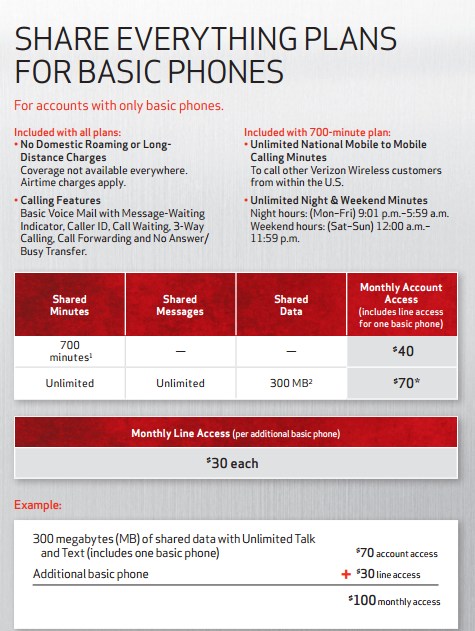As a growing firestorm over Verizon Wireless’ newly-announced plans continued today as some on Wall Street are becoming convinced Verizon has bungled the case for their new “Share Everything” concept.
Industry analyst Rob Enderle told ComputerWorld that Verizon’s handling of their pricing changes “is similar to the Netflix mistake last year that almost sunk that company.” Enderle believes the changes Verizon wants to force on the wireless market are potentially too radical to be embraced within the next two weeks, when Verizon’s new rate plans become active.
Verizon Wireless has been trying to quell the increasing criticism from consumers by reminding them they will not be forced to move to the new plans from an existing account.
“We’re allowing the existing customer base to have a choice; we’re not forcing anyone to more to new plans,” said Steve Mesnick, head of marketing for Verizon Wireless. “I take exception to [suggestions] of people leaving Verizon,” he said.
While Mesnick is correct Verizon will not force customers to choose new plans on June 28, the company will require existing grandfathered data customers to abandon unlimited data when they renew their Verizon contract or upgrade to a new discounted device.
 Verizon claims it interviewed 50,000 customers before implementing the new plans and believe they will be embraced by the majority of Verizon customers.
Verizon claims it interviewed 50,000 customers before implementing the new plans and believe they will be embraced by the majority of Verizon customers.
Verizon Wireless spokeswoman Brenda Raney followed a different approach, pretending consumer complaints don’t exist: “We are very pleased with the response to our announcement as customers begin to understand how the new Share Everything Plans will save them money or provide them with more value for the same money they are paying today.”
Meanwhile, customers who have no intention of either forfeiting the unlimited data plan they have grandfathered on their account or who refuse to pay Verizon’s new asking price are busily upgrading their phones and signing new two-year contracts before June 28, buying an additional two years of unlimited data. Many others claim to be leaving, often for Sprint, which continues to offer unlimited data, or a prepaid provider.
Verizon and AT&T have a combined 38 percent of customers on grandfathered unlimited data plans and most are insistent on keeping them. News that customers could retain unlimited data by forfeiting the wireless carrier’s subsidy for new phones has gone over like a lead balloon, especially with price tags of $699 or more for popular new smartphones.
“The importance of this client base cannot be overstated–unlimited mobile data plan users are some of the most valuable subscribers in the industry,” Iain Gillott, president and founder of iGR, told Fierce Wireless. “Our research shows that these two carriers need to be very careful to offer a migration plan to replace the grandfathered unlimited plans that provides the data service, value and recognition that meets these valuable consumers’ needs.”
With popular new smartphones like the iPhone becoming available on no-frills prepaid carriers like Cricket, wireless carriers are at risk of subscriber defections.
Despite consumer discontent, Wall Street has supported the income-enhancing new wireless plans and is embracing the increased fees Verizon will likely earn as data demand rises.


 Subscribe
Subscribe











